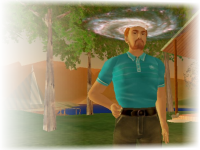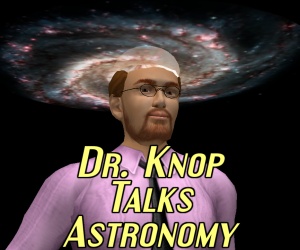I’ll be joining the faculty of Quest University in Fall 2010
Last week, I flew out to Squamish, BC to interview for a faculty position at Quest University. Two days after I returned, they called me to offer me the job, and I accepted it. Next summer (July 2010), Alyson and I will be moving to Squamish, and starting next Fall, I’ll be a Tutor of Physics at Quest. As far as I can tell, this is my dream job.
Although there have been moments where I questioned this, I have long considered it my calling to teach at the college level at a small liberal arts college. Eight years ago, when the only offer I had was at a large research University, I thought I could make that work— and I almost did. Two and a half years ago, after the quashing of the notion that I could stay forever at a research University, I thought I was never going to be able to work at my true calling, and I took up a (enjoyable and rewarding) backup plan. Half a year ago, when booted out of my backup plan, I despaired that I would ever be able to do anything but “just make money”.
So why do I think Quest is my dream job? I sent out applications to 14 small colleges, 13 of which were in the US, a couple of months ago. I didn’t apply to large research universities at all this time around. However, I’m in that awkward position of being somebody who’s 13 years past his PhD and not a superstar. It’s hard for colleges to hire somebody like me because they have to figure out if they should evaluate me for tenure straightaway, and, crucially, because there is a tremendous oversupply of extremely capable and extremely well-resumed young physics PhDs out there that they can hire for less money. The competition is stiff, and since my realistic and non-superstar resume was competing with extrapolations from very high-end post-docs, I knew it was a long shot. However, even at the beginning, I could tell that Quest was a different sort of place from even most of the small liberal arts colleges. And, I believe it was some of those differences that both made the place so attractive to me and made me “hireable”.
The two single most important things about Quest are this. First, it’s a small liberal arts undergraduate college (enrollment currently in the 200’s, with a target of 600 to 800 in the next five years). (It turns out that while small, secular, independent liberal arts colleges are all over the place in the USA, Quest is unique in Canada.) Second, it’s a new college. Indeed, it’s only had students for three years, so nobody has graduated from there yet! What’s more, not only is it new and thus free of the notion that “we’ve always done things this way here”, but it was also deliberately founded with the best modern understanding of what really makes for a great undergraduate education.
Like Colorado College, Quest operates on the block plan. Students take only one class at a time, and they completely focus on it for three and a half weeks. I don’t have much direct experience with this myself (the closest I’ve been is teaching introductory astronomy over the course of five weeks at Vanderbilt during the Summer term), but I have talked to a number of people who find that they like this model of coursework far better than the traditional “scattered attention over a semester” model. And, given my own tendency to get into something and to want to hyperfocus on it, it appeals to me.
When I was sending out applications, I had to edit my “statement of teaching philosophy” a bit. Originally, I had a statement to the effect of “modern physics educational research has shown that straight lecturing is not an effective way to teach physics courses”. I realized that that statement might directly offend people on the committees that would be reading my applications, and stated it more cagily. (”Much recent research into physics and astronomy education has shown that the most effective use of class time comes when students actively engage the material.”) Quest, however, contained more or less the same original statement in their job advertisement. This was clearly a place that “gets it”. When I visited Quest, I was quite impressed. The faculty members I met with were dynamic and intelligent, and truly cared about undergraduate education as their primary creative endeavor. They were high on the institution, and they were high on their students. Indeed, I was also impressed with the students I met, both in the “sample class” I taught, and when I chatted with a few of them and some others afterwards during lunch. I would say that I was even more impressed by these students as a group than I was by the students at Pomona I met with when I applied there several years ago— previously, that was the group of students I’d met during job interviews who impressed me the most. (Of course, the most impressive undergraduate students I’ve worked with over the years include Jessica Hodges, James Schlaerth, Naved Mahmud, Jonathan Stricker, Andrew Collazzi, Anders Jensen, and Cameron Pittman… i.e. the ones who’ve done research with me!) (When I interviewed at Vanderbilt nine years ago, I met some graduate students, but I didn’t teach a “sample class”, nor did I meet any undergraduates.)
Quest also doesn’t do tenure. Many would view this as a disadvantage. And, indeed, I can fully appreciate the value of the perk of having a permanent assured job. But, I’ve been on the other end of tenure, and anybody who read my blog a few years ago knows that I suffered greatly because of it. A friend of mine once said that she didn’t know anybody who went through the tenure process without having it f–k them up severely. While many point to the “deadwood” problem as the “flaw” of tenure, David Helfand (the current president of Quest) said what I also think— that that problem is overblown, and is only something like a 10% effect. The real problems of tenure is that it limits academic freedom for pre-tenure people. I don’t know that that is such a severe problem in the sciences, but you can easily imagine how in any department the young, bright, and dynamic faculty may have to constantly censor themselves to avoid torquing off a powerful ego in their department. Heaven knows that I didn’t manage keep my mouth shut, and freely offended several senior professors in my department… and I still believe that had I received an NSF grant, I would have had no problem getting tenure at Vanderbilt, because there were enough other senior professors who agreed with the things I was saying. However, tenure did put tremendous stress and pressure on me, and that stress and despair undermined my research productivity my last few years at Vanderbilt. All in all, by the end, for me, the tenure system had nothing but negative effects while I was at Vanderbilt. As long as Quest does real faculty evaluations that really evaluate whether they are doing what they’re supposed to be doing well (and I believe that it will do this), I’m just as happy to be shut of the whole tenure system.
Indeed, I suspect the lack of tenure made it much easier for Quest to consider me than it would have for other colleges. They didn’t have to look at somebody 13 years out from his PhD with six years experience teaching at the University level and think about tenure clocks or any of that. I’m just one more contracted Tutor. (Oh, and, they call them Tutors there in order to emphasize that our role is not to “profess”, but to enable and aid the students in learning how to think and how to learn.)
A lot of colleges and Universities include a “writing across the curriculum” initiative. When I learned during my final interview that Quest is trying to start a “quantitative reasoning across the curriculum” initiative in addition to this, I almost fell over under the “this must be too good to be true” response. I’ve long bemoaned that Universities understand the value of writing while missing the equally important value of quantitative reasoning.
Because Quest is not only a new University, but a small University where faculty have no choice but to teach some courses outside of the “straight and narrow” of their fields, I am very sure I’ll be able not only to challenge myself by teaching some of their Foundation classes, but that I’ll be able to create new and interesting courses that might transcend what you’d fine at a “normal” Physics department. I’m not just thinking about an undergraduate fluid mechanics course (which one student at lunch asked for while I was visiting), but I may one day before long get to teach a class about the science found in Tom Stoppard’s plays…. It’s all opportunity, it’s all exciting future.
When I left Quest this last week, I felt that this was the place where I was supposed to be. It almost made me think that perhaps there was some Plan at work, that I taught at a research University for six years not because I went where I had the offer (instead of to the sort of place I thought I really wanted to teach), but because it was preparing me while Quest University was in the process of being created. (I don’t really believe that; if you are lucky, it’s not a mystical force, but it’s merely because, in the words of Spock, “random chance seems to have operated in [your] favor”.) I was very excited when they called me on the phone to offer me the job, and the only reason I didn’t accept it on the spot was that my wife was napping, and I did want to check in with her before accepting a job that was going to include a move to western Canada.
I still don’t know everything I’m going to be doing during the first half of 2010, but next Summer I’ll be moving to Squamish, and next fall I’ll be a Tutor in Physics at Quest University.

 I give regular talks in a series entitled “Dr. Knop Talks Astronomy” as part of
I give regular talks in a series entitled “Dr. Knop Talks Astronomy” as part of 